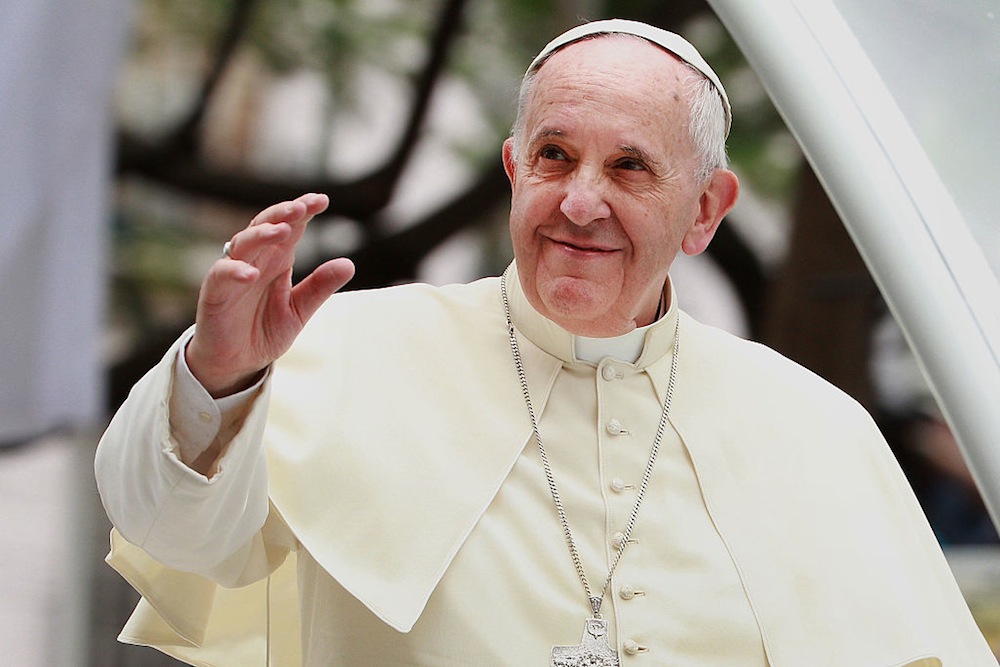
Vatican Issues New Cremation Guidelines for 'Faithfully Departed'

Get the world’s most fascinating discoveries delivered straight to your inbox.
You are now subscribed
Your newsletter sign-up was successful
Want to add more newsletters?

Delivered Daily
Daily Newsletter
Sign up for the latest discoveries, groundbreaking research and fascinating breakthroughs that impact you and the wider world direct to your inbox.

Once a week
Life's Little Mysteries
Feed your curiosity with an exclusive mystery every week, solved with science and delivered direct to your inbox before it's seen anywhere else.

Once a week
How It Works
Sign up to our free science & technology newsletter for your weekly fix of fascinating articles, quick quizzes, amazing images, and more

Delivered daily
Space.com Newsletter
Breaking space news, the latest updates on rocket launches, skywatching events and more!

Once a month
Watch This Space
Sign up to our monthly entertainment newsletter to keep up with all our coverage of the latest sci-fi and space movies, tv shows, games and books.

Once a week
Night Sky This Week
Discover this week's must-see night sky events, moon phases, and stunning astrophotos. Sign up for our skywatching newsletter and explore the universe with us!
Join the club
Get full access to premium articles, exclusive features and a growing list of member rewards.
Just in time for All Souls Day on Nov. 2, the Catholic Church has published instructions for the cremation of the "faithfully departed."
The guidelines, released today (Oct. 25), state that a person's ashes must be kept in a sacred place, not in a home or other domestic residence, and should not be scattered or divvied up in any way.
The guidelines are not meant to suggest that the Catholic Church now prefers cremation over burial of the body, as that isn't the case. In fact, they stem from earlier burial instructions published in 1963, when the Holy Office established "Piam et Constantem," which established that Catholics should be buried with reverence and that cremation wasn't "opposed per se to the Christian religion." As such, those who were cremated could still receive the sacraments and funeral rites as long as their decision to be cremated was not an indication of their "denial of Christian dogmas, the animosity of a secret society, or hatred of the Catholic religion and the Church," the "Piam et Constantem" read, according to a statement by the Vatican.
Even so, according to the Vatican, cremation practices contrary to the Christian faith have popped up. As a result, the new guidelines are meant to emphasize that the Catholic Church's preference is for the remains of Christians to be buried and, to state instructions for conserving the ashes when cremation is chosen. [After Death: 8 Burial Alternatives That Are Going Mainstream]
According to Catholic teachings, to honor the death and resurrection of Jesus Christ, burial in a cemetery or other sacred place is "above all the most fitting way to express faith and hope in the resurrection of the body," the Vatican statement reads. Burial in a sacred place also allows family and other loved ones to pray for and remember the dead, according to the statement.
Catholics believe that the soul is immortal and does not depend on the physical body. Since cremation of the deceased's remains do not affect his or her soul, according to the Church, there are no doctrinal objections to the practice. (As a side note, even some distinguished scholars are pondering the existence of a soul, and what that soul might look like.)
As for why the ashes shouldn't be scattered, in the eyes of the Church, such an action could suggest the belief in another form of a god. "In order that every appearance of pantheism, naturalism or nihilism be avoided, it is not permitted to scatter the ashes of the faithful departed in the air, on land, at sea or in some other way, nor may they be preserved in mementos, pieces of jewelry or other objects," the statement reads.
Get the world’s most fascinating discoveries delivered straight to your inbox.
If these guidelines aren't followed, the Church will deny funeral rites, according to the statement. "When the deceased notoriously has requested cremation and the scattering of their ashes for reasons contrary to the Christian faith, a Christian funeral must be denied to that person according to the norms of the law," the statement reads.
Jeanna Bryner is managing editor of Scientific American. Previously she was editor in chief of Live Science and, prior to that, an editor at Scholastic's Science World magazine. Bryner has an English degree from Salisbury University, a master's degree in biogeochemistry and environmental sciences from the University of Maryland and a graduate science journalism degree from New York University. She has worked as a biologist in Florida, where she monitored wetlands and did field surveys for endangered species, including the gorgeous Florida Scrub Jay. She also received an ocean sciences journalism fellowship from the Woods Hole Oceanographic Institution. She is a firm believer that science is for everyone and that just about everything can be viewed through the lens of science.
 Live Science Plus
Live Science Plus










